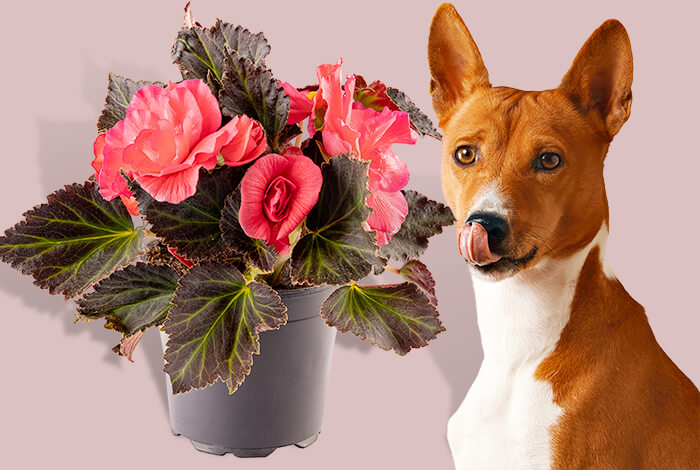![]() Reviewed By Joana Garrido DVM
Reviewed By Joana Garrido DVM
Why are begonias poisonous to dogs? Begonias are poisonous to dogs because they naturally produce soluble calcium oxalates.
In this article, we will go over the health risks these chemicals pose to your canine friend and teach you what to do if he ingests begonias.
What Is the Main Danger of Begonias to Dogs?
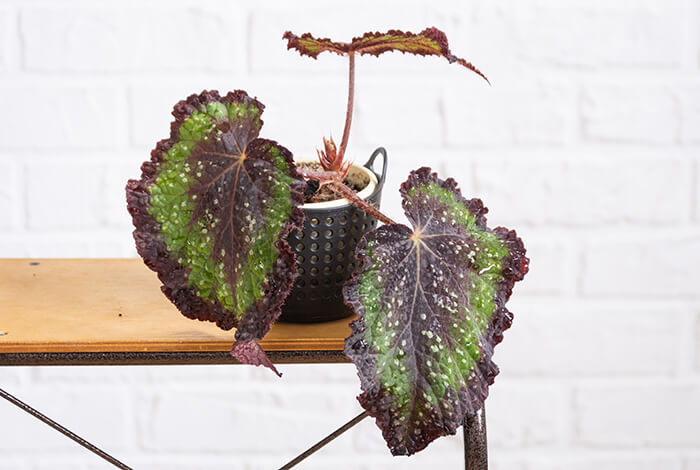
Soluble calcium oxalates are sharp raphides present in the begonia. They come in tiny crystals, which get released from the plant whenever it sustains damage.
These chemicals serve as the begonia’s defensive mechanism when grazing animals chew on it. However, some dogs might also be enticed to munch on the plant due to curiosity, exposing them to these offensive compounds.
Soluble calcium oxalates become gastrointestinal irritants upon ingestion. They can induce stomach pain, vomiting, and diarrhea.
In some cases, these chemicals bind with the calcium in the bloodstream, leading to hypocalcemia. Kidney failure may result from this condition.
While these adverse reactions are commonly seen in grazing animals, they might also occur in canines.
Does Begonia Cause Other Adverse Reactions in Dogs?
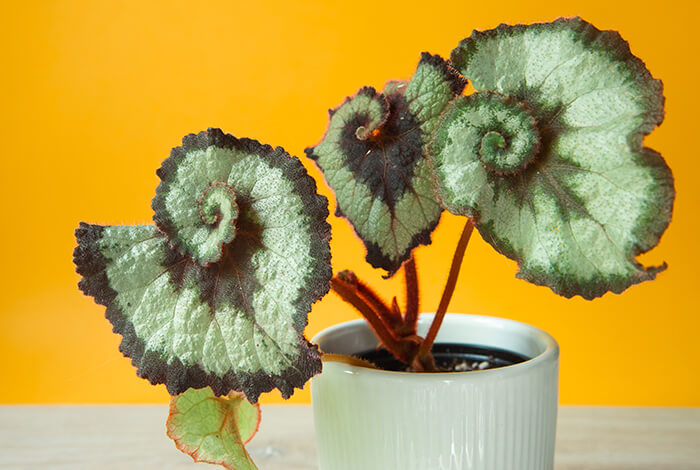
The soluble calcium oxalates in the begonia plant are irritating to the skin. They can cause itchiness, rashes, and redness on the skin upon dermal contact.
If ingested, these compounds may irritate the mouth and tongue. It may result in excessive drooling and swelling of the lips and throat.
In severe cases, affected canines might face difficulty swallowing, which makes eating and drinking hard for them.
Pet owners also need to look out for the risk of stomach blockage. The roots of begonia are fibrous and difficult to digest. If consumed in large amounts, they cannot easily excrete from the body through bowel movements.
How Poisonous Is the Begonia to Dogs?

The begonia is not the most toxic plant species to canines. The effects of its poisonous compounds tend to be on the milder side than other plant varieties.
Severe begonia poisoning in dogs usually occurs if a large quantity of the plant is ingested. However, this is not always the case for certain dogs, specifically miniature and toy breeds.
Their small bodies make it easier for the plant’s toxins to quickly accumulate and circulate in their system.
Thus, in comparison to larger dog breeds, they are more likely to suffer from severe toxicity after consuming only a small amount of the plant.
Thus, do not disregard the dangers begonia poses to your canine friend, even if they are mild.
What Are the Toxic Parts of Begonias to Dogs?
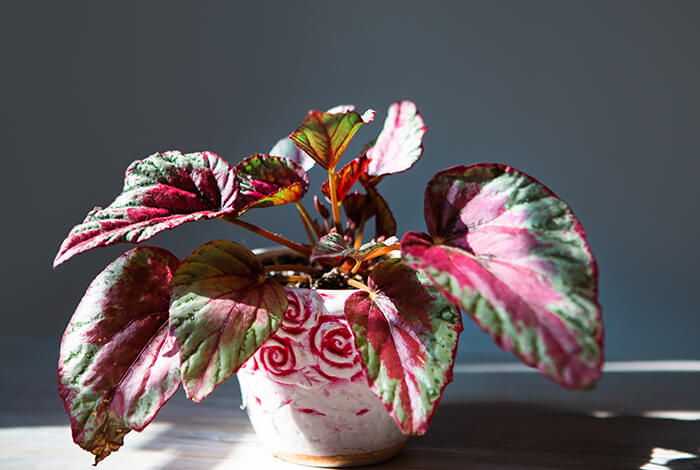
All parts of begonias are poisonous to dogs, but its rhizomes, tubers, roots, and sap contain the highest concentrations of soluble calcium oxalates.
However, since these chemicals often cause irritation, pooches are less likely to continue eating the plant once the adverse reactions start kicking in.
What Are the Symptoms of Begonia Poisoning in Dogs?
The most common and noticeable symptoms of begonia toxicity in dogs are excessive drooling, vomiting, and redness of the mouth. Other clinical signs to keep track of include:
- Inappetence
- Mouth sores
- Constant lip licking
- Swollen mouth and tongue
- Hard time swallowing
Although these are often considered minor clinical signs, medical attention is necessary. Frequent vomiting puts your canine friend in danger of severe dehydration.
We have also mentioned earlier that more serious health complications like hypocalcemia and kidney might crop up if he ingested begonias in excessive amounts.
What to Do If Your Dog Consumes Begonias?
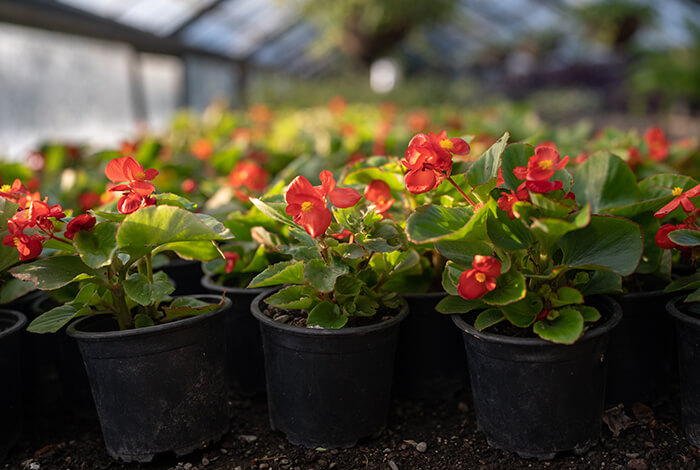
If you caught Fido ingesting begonias, remove him away from the plant. Then reduce the severity of irritation in his mouth, tongue, and lips by carefully rinsing them with water.
If you are using a hose, use a gentle stream of water to prevent it from getting into his nose. Another alternative is to soak a clean towel with water, wring out any excess, and it on your pet’s lips and mouth.
In some cases, inducing vomiting at home can help remove toxins from a dog’s system. However, it should be done in time and with a veterinarian’s approval for your pet’s safety.
Wrong execution of this procedure can lead to life-threatening results, particularly aspiration pneumonia. This condition causes the lungs to become inflamed due to inhaled foreign material like vomit.
The next step is to collect information about the accident. Take note of the time it happened, the parts of the plant your pet ate, and the amount he ingested.
Once you have acquired all the important details, contact the vet or a pet poison control helpline to know if your pet’s condition warrants a trip to the animal clinic.
If you are instructed to do the latter, make sure to bring a sample of the plant. Presenting it to the vet will aid in determining if your furry pal might manifest begonia poisoning.
How Is Begonia Poisoning Treated in Dogs?
Begonia poisoning in dogs requires supportive care. It often involves minimizing the adverse reactions caused by the soluble calcium oxalates in the plant.
For instance, your pet will be given IV therapy to combat loss of electrolytes and dehydration due to frequent vomiting. Anti-inflammatory medications will be prescribed if he is suffering from severe swelling in the throat.
Unless his condition is serious, your furry pal will be able to go home within a day or two. The veterinarian may advise you to temporarily feed your dog a bland diet to avoid upsetting his recuperating stomach.
FAQs About Why Are Begonias Poisonous to Dogs
1. How Poisonous Are Begonias to Dogs?
Begonias are mildly toxic to dogs. In most cases, ingesting a small amount of the plant will not trigger life-threatening adverse reactions.
However, small dog breeds are more susceptible to the plant’s poisonous compounds because of their small bodies. Thus, they require more close supervision if they consume the toxic parts of the plant.
2. Are Begonia Leaves Poisonous to Dogs?
Begonia leaves are poisonous to dogs, However, they only contain trace amounts of soluble calcium oxalates. Unless they are ingested in large amounts, begonia leaves are unlikely to induce fatal poisoning.
3. Are Begonia Flowers Safe to Eat For Dogs?
Begonia flowers are mildly toxic; thus, they are not safe for dogs to eat. Keep these blooms away from your pet for his safety.
4. What Happens If a Dog Eats a Large Amount of Begonia?
If a dog eats a large amount of begonia, he may show adverse reactions like vomiting, hypersalivation, and swollen mouth and throat.
Severe begonia poisoning can induce more serious conditions such as low calcium levels and kidney failure. Manifestation of these clinical signs must be given immediate medical attention to prevent them from worsening.
Conclusion
Why are begonias poisonous to dogs? Begonias produce compounds called soluble calcium oxalates, which make them poisonous to dogs.
These chemicals are released as a defense mechanism whenever the plant gets damaged.
Chewing on the plant exposes your furry companion to soluble calcium oxalates and may develop adverse reactions like GI upset and a swollen mouth and throat.
Although these are usually mild symptoms, your pet’s condition still needs to be checked by the vet to ensure his safety.

